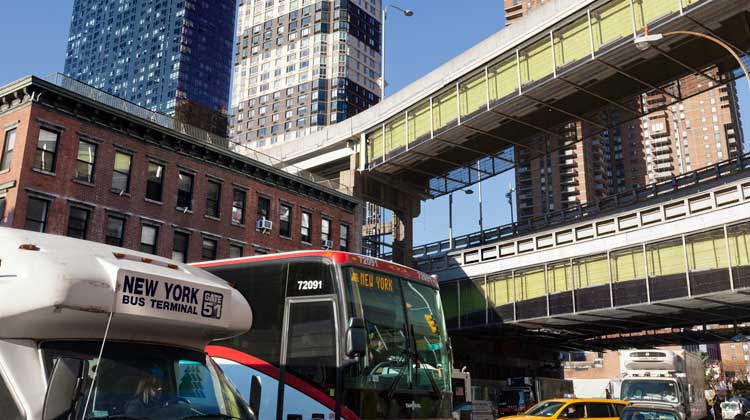
President Donald Trump once again took aim at what he calls America’s “lax immigration system” Monday responding to the pipe bomb attack at the New York City Port Authority. The attack seriously injured the bomber; about four others received minor injuries.
“Today’s terror suspect entered our country through extended-family chain migration, which is incompatible with national security,” Trump said in a White House statement released late Monday. “Congress must also act on my administration’s other proposals to enhance domestic security, including increasing the number of Immigration and Customs Enforcement officers, enhancing the arrest and detention authorities for immigration officers, and ending fraud and abuse in our immigration system.”
Terror suspect Akayed Ullah was charged Tuesday morning with criminal weapons possession, supporting a terror act, and making terror threats. Federal charges are expected to follow.
A profile of alleged bomber Ullah began to emerge throughout the day Monday. An immigrant from Bangladesh, Ullah entered the country in 2011 reportedly through a visa program offered to relatives of U.S. citizens. The New York Times reported that he had been a driver for a car service, lived in Brooklyn, and “often prayed at a mosque in an unassuming brownstone in the Kensington section of the borough.”
The paper reported that Ullah said the bombing was in retaliation for U.S. attacks on the Islamic State of Iraq and Syria, among other things. He also reportedly had traveled overseas a number of times in the past five years, recently to Bangladesh.
Trump was pointed in his criticism of how Ullah arrived in the country.
“Today’s terror suspect entered our country through extended-family chain migration, which is incompatible with national security,” Trump said. “My executive action to restrict the entry of certain nationals from eight countries, which the Supreme Court recently allowed to take effect, is just one step forward in securing our immigration system.”
Federal and local officials, according to the New York Times, said the attacker would face prosecution in federal court.
Andrew McCarthy, former U.S. attorney for the Southern District of New York and senior fellow at the National Review Institute, was critical of what he sees as a rush to categorize this as a civilian matter.
“We do not know if Ullah may lawfully be treated as an enemy combatant — i.e., whether he fits the definition of the enemy set forth by Congress in the post-9/11 Authorization for the Use of Military Force (AUMF),” McCarthy wrote at NationalReview.com, suggesting that as an enemy combatant, agents could question him without counsel and possibly glean intelligence regarding other attacks or terror information, and the risk of such interrogation is low. “Legally, the worst thing that happens is prosecutors will not be able to use any statements he makes as evidence at his trial. But so what? … Prosecutors do not need a confession to convict this savage, but intelligence agents need to know any information he has that might help us prevent another attack.”
Other views trickled out of U.S. media in the day following the attack.
Newsday editorialized that this won’t be the last attack.
“No matter what strain of mistaken ideology the bomber thought he was following—no matter what perceived injustice he incorrectly believed called for a brutal attack—Monday marked just one more in a long line of attempts,” the editorial stated. “Unfortunately, there will be more.”
New York Gov. Andrew Cuomo made a number of comments to local news outlets, according to the New York Daily News, suggesting Internet providers contact authorities when individuals frequent nefarious websites, such as those with bomb-making instructions and the like.
“[W]e know these people are going to the Internet, and we know they are downloading information from certain websites as to how to kill people,” he said in an MSNBC interview, according to the Daily News.
The New York Post editorial page praised responders of the attack and noted the challenges faced by the New York Police Department, particularly city legislation that the Post says could hamper police officers’ abilities to do their jobs.
“[I]t’s so mystifying that the City Council is moving ahead to pass the Right to Know Act, which would dangerously discourage cops’ ability to perform proactive policing,” the editorial stated. “A vote is set for next week on this legislation, which is designed to get cops to ignore potential crimes and suspicious behavior for fear of civilian complaints.”
Homeland411 will continue to provide updates on Monday’s attack.
© 2017 Homeland411